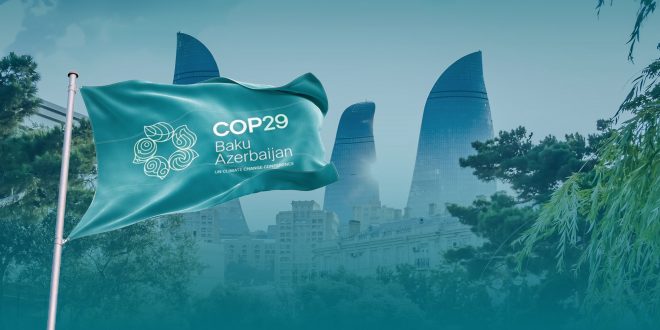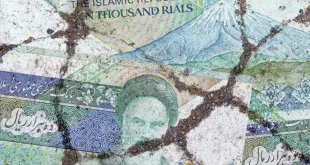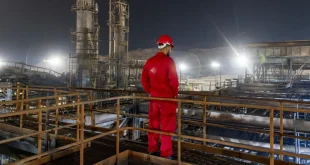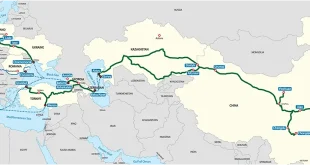Historically reliant on its abundant gas and oil resources, Azerbaijan is currently experiencing a significant energy transition aimed at enhancing sustainability and broadening its energy composition. The country has made large investments in hydroelectric, solar, and wind power to meet its ambitious targets for increasing the share of renewable energy in the country’s energy system. Renovating hydroelectric facilities, building solar power plants in regions with strong solar radiation, and constructing wind farms in the Caspian Sea are important projects. These efforts are complemented by initiatives aimed at optimizing energy efficiency and integrating smart grid technologies. By reducing reliance on the export of fossil fuels, this shift seeks to strengthen economic resilience and is consistent with Azerbaijan’s international environmental obligations. It is anticipated that the switch to renewable energy will accelerate scientific advancement, draw in foreign capital, and generate new jobs. Azerbaijan hopes to become a regional leader in sustainable development and long-term energy security by implementing these measures.[1]
Shifting from fossil fuels to renewable energy
In recent years, Azerbaijan has made a dramatic shift in its energy policy, switching from traditional fossil fuels to renewable energy sources. Numerous national and international considerations are the driving forces behind this strategy shift. In terms of economy, Azerbaijan wants to reduce its reliance on fossil fuels and improve energy security and stability by diversifying its energy mix. In terms of the environment, the country aims to reduce its carbon footprint and assist international efforts to tackle climate change. Adopting sustainable energy sources, including hydroelectric, solar, and wind power, establishes Azerbaijan as a forward-thinking participant in the energy sector. This change highlights Azerbaijan’s commitment to sustainable development and is in line with global environmental goals.[2]
Azerbaijan’s energy policy rests on several foundational principles
Ensuring energy security through the diversification of energy sources and reducing reliance on fossil fuels stands as a primary objective for Azerbaijan. This involves developing alternative sources and routes to safeguard against supply disruptions.[3]
Enhancing energy efficiency across manufacturing and consumer sectors is prioritized, including building new power plants, upgrading existing ones, and minimizing energy losses to optimize consumption efficiency. Additionally, Azerbaijan is committed to advancing renewable energy sources like solar and wind power to lower greenhouse gas (GHG) emissions and increase the proportion of renewable energy within the national energy portfolio.[4]
Another goal is to increase energy export capacity with the intention of exporting both renewable and conventional fossil fuels. Infrastructure is being strengthened to promote energy trade, particularly with markets in Europe.[5] Azerbaijan’s energy strategy is driven by environmental sustainability, which includes using cleaner “transition fuels” like natural gas and enacting laws to guarantee both environmental preservation and sustainable energy growth. With the goals of achieving energy security, lowering carbon footprints, and promoting sustainable energy practices that are essential for both long-term economic and environmental well-being, these pillars together form the foundation of Azerbaijan’s energy policy.[6]
By 2030, Azerbaijan hopes to reduce GHG emissions and enhance energy security by raising the proportion of renewable energy sources in the energy mix to 30% to counterbalance its reliance on fossil fuels. The Garadagh Solar Power Plant and the Khizi-Absheron Wind Power Project are two of the renewable energy initiatives the country is pursuing. Azerbaijan has initiated an Offshore Wind Roadmap in partnership with the World Bank and the International Finance Corporation (IFC) to harness offshore wind resources for energy generation. With sector-specific strategies specifying targeted reductions, energy efficiency measures are being applied across all industries to cut consumption and minimize dependency on fossil fuels.[7]
To lessen reliance on fossil fuels and encourage the expansion of renewable energy sources, Azerbaijan is pushing international cooperation. Contracts with foreign partners, like those from the United Arab Emirates (UAE), aim to boost funding for sustainable energy initiatives, such as the construction of solar and wind power facilities. Founded in 2020, the State Agency for Renewable Energy Sources shows Azerbaijan’s dedication to using significant renewable energy potentials by offering strategic oversight and support.[8]
The Renewable Energy Law was enacted to encourage the development of projects by means of competitive bidding procedures and initiatives aimed at encouraging energy users to be active consumers. Karabakh and other green energy zones have a lot of potential for generating renewable energy, including solar, wind, and hydropower.[9]
The important role of GCC energy firms in Azerbaijan’s renewable energy projects
Gulf Cooperation Council (GCC) energy businesses use their knowledge, resources, and money to support Azerbaijan’s renewable energy initiatives. Their engagement lessens Azerbaijan’s dependency on fossil fuels and encourages environmental stewardship by expediting the development of sustainable energy infrastructure. GCC businesses support the nation’s efforts to achieve greater energy security and diversification through alliances and investments.
The UAE’s Masdar invests in Azerbaijan’s renewable energy sector
Through project development and strategic investments, Masdar is a major participant in the renewable energy sector and has greatly aided Azerbaijan’s transition to clean energy. Notably, Masdar oversaw the building of the region’s largest solar facility, the ground-breaking 230-Megawatt (MW) Garadagh Solar Power facility. The Asian Development Bank (ADB) and the Abu Dhabi Fund for Development are co-financing this project, which highlights Masdar’s dedication to building sustainable energy infrastructure in Azerbaijan.[10]
Apart from the Garadagh Solar Power Plant, Masdar has initiated big projects such as the 1000 MW combined capacity Neftchala and Bilasuvar Solar Power Plants. These programs, which were created in association with SOCAR, the State Oil Company of the Republic of Azerbaijan, emphasize Masdar’s contribution to increasing Azerbaijan’s potential for renewable energy. Additionally, the Absheron-Garadagh Wind Power Plant, a further 1000 MW (1 GW) project that would increase Azerbaijan’s portfolio of renewable energy, is being collaboratively developed by Masdar and SOCAR.[11]
Masdar’s engagement with Azerbaijan goes beyond specific initiatives. It also contains a 1 GW clean energy deal that corresponds with Azerbaijan’s 2030 sustainable energy targets, covering two solar projects and one onshore wind project. This deal is part of Masdar’s larger commitment to using its global knowledge and expertise from operations in more than 40 countries to build a strong 10 GW pipeline of renewable energy projects in Azerbaijan.[12]
ACWA Power invests in Azerbaijan
ACWA Power has made significant contributions to Azerbaijan’s renewable energy industry with a 240 MW wind farm project that is expected to produce one billion kilowatt-hours a year. This program demonstrates ACWA Power’s dedication to supporting the country’s infrastructure for sustainable energy.[13]
The formal approval of an investment arrangement by Azerbaijan President Ilham Aliyev’s administration with ACWA Power confirms the company’s involvement in expanding renewable energy technologies in Azerbaijan. SOCAR and Masdar are two prestigious partners with whom ACWA Power is working together to construct 500 MW of renewable energy capacity. This includes a substantial US$286 million investment in a 240 MW wind power plant that is presently under construction.[14] These investments demonstrate ACWA Power’s unwavering commitment to renewable energy projects in Azerbaijan, highlighting its critical role in furthering the nation’s goals for sustainable development. Through the strategic utilization of its relationships and investments, ACWA Power persistently influences the renewable energy landscape of Azerbaijan and solidifies its standing as a pivotal participant in the region’s sustainable development initiatives.[15]
BP and Nobel Energy
Through several projects, BP and Nobel Energy have made large investments in Azerbaijan’s renewable energy industry. With funding of US$2 million, BP and the Azerbaijani Ministry of Education have partnered to open a new master’s program in renewable energy at a nearby institution.[16] In contrast, Nobel Energy is moving forward with a 100 MW solar power station in Jabrayil to lower 1,170,000 tons of carbon emissions over a 25-year period. The company has also inked an agreement with the Ministry of Energy to create 400 MW of solar power plants in Nakhchivan.[17]
SOCAR Green
To reduce carbon emissions and fight climate change, energy corporations throughout the world are turning more and more to renewable energy sources. Significant investments must be made in technologies such as carbon capture, hydroelectric power, solar, wind, and green hydrogen production to make this shift successful. These projects seek to set the standard for a greener, more reliable energy future in addition to adhering to environmental standards.
SOCAR has recently made notable advancements in the field of renewable energy. The creation of SOCAR Green LLC, a subsidiary tasked with managing renewable energy projects and establishing alliances with foreign organizations, has been approved by the Supervisory Board of SOCAR. Decarbonizing oil and gas production through programs like carbon capture and storage and green hydrogen generation is part of SOCAR Green LLC’s mandate. In addition, it is creating strategic plans that are adapted to Azerbaijan’s needs to lower national carbon emissions and implement best practices from across the world.[18]
According to SOCAR, Baker Hughes and SOCAR will open a facility in Azerbaijan. There are already agreements in place for collaboration with important partners such as Energy China, Masdar, and BP. Projects like the 240-MW solar plant in Jabrayil with BP and the 1 GW wind and solar project with Masdar are being driven by these agreements. Plans include working with partners like Masdar and ACWA Power to build more wind and solar facilities in the Nakhichevan Autonomous Republic. SOCAR and Baker Hughes also built an electric submersible pump (ESP) assembly and maintenance facility in Azerbaijan. The goal of this partnership is to increase production efficiency by utilizing cutting-edge technology and tactical teamwork. Under this project, which is being supported by SOCAR’s Azneft Production Union and Baker Hughes Services International LLC, 50 ESP kits will first be supplied to Azerbaijan.[19]
Through creative collaborations and the use of new technologies, these efforts highlight Azerbaijan’s proactive commitment to incorporating renewable energy into its energy portfolio and improving the sustainability and efficiency of oil and gas production.
Smart village and green energy zones
The idea of smart cities and villages is a significant advancement in Azerbaijan’s efforts to make the energy transition. The integration of smart technology has tremendous promise for improving efficiency, sustainability, and quality of life as the nation works to modernize and optimize its urban and rural environments. The creation of “green energy zones,” which are purposefully planned to capture renewable energy sources like solar, wind, and hydropower, is at the center of this revolution. By lowering dependency on fossil fuels, these zones not only lessen their negative effects on the environment but also improve energy security and promote economic growth by encouraging innovation and clean technology investment. Azerbaijan’s proactive approach to creating resilient, future-ready communities that prioritize sustainable development is demonstrated by its embracement of smart cities and green energy zones.
In southern Azerbaijan, Aghali is a trailblazing “smart village” that serves as a symbol of the government’s post-2020 war rehabilitation initiatives in the retaken territory of Karabagh.[20] Aghali is a renewable energy hub that combines solar panels on homes, a state-of-the-art hydropower plant, and cutting-edge “smart agriculture” programs with the goal of reaching “net zero” emissions. As a prototype, Aghali is the first of around thirty proposed smart villages that will be built in Karabakh. The administration has declared Eastern Zangezur and Karabakh to be “green energy zones,” with the objective of putting these regions into action for several renewable energy projects, such as the 500 MW solar power plant that is being planned in Nakhchivan.[21]
Azerbaijan has designated several areas as “green energy zones” to promote the growth of renewable energy sources and reduce GHG emissions. These regions, which have been set aside to support renewable energy initiatives like solar and wind power installations, include Karabakh and East Zangezur. The Nakhchivan region is furthermore acknowledged as a “green energy zone,” emphasizing the development of solar and wind energy resources.[22]
Azerbaijan’s hosting of the COP29 UN Climate Summit
The United Nations Framework Convention on Climate Change (UNFCCC) 29th Conference of the Parties (COP29) is scheduled to take place in Baku, Azerbaijan, in November 2024. The nation has been working hard to be ready for what is anticipated to be the most inclusive COP in history. To increase collaboration and guarantee a successful event, Azerbaijan has been collaborating closely with several international organizations, such as the International Islamic Educational, Scientific, and Cultural Organization (ISESCO).[23]
As part of its preparations for COP29, Azerbaijan has actively interacted with 102 non-governmental organizations and public activists from thirty-one countries. The importance of Azerbaijan’s presidency has been emphasized by President Ilham Aliyev, who described it as a chance to actively address urgent global challenges. He also underlined the nation’s commitment to environmental care, pointing out that since 1994, all petroleum activities have rigidly complied with global environmental regulations. Foreign NGOs have praised Azerbaijan for encouraging communication and collaboration, with many hailing it as a crucial “bridge” connecting many nations and areas.[24] COP29 is considered as an opportunity to highlight Azerbaijan’s dedication to combating climate change and raise its stature internationally. Being the host of COP29 is in line with Azerbaijan’s objectives to draw in foreign investment in the renewable energy sector, showcase its leadership potential in green technology within the region, and further its integration with the European Union (EU).
Azerbaijan wants to diversify its economy away from fossil fuels and grow the renewables sector by utilizing COP29. This comes after important collaborations on renewable project development with businesses like BP and Masdar. Furthermore, Azerbaijan and Armenia might work together on renewable energy initiatives at COP29, which could improve relations between the two nations. In the end, it is envisaged that COP29 would encourage more financing for renewable energy sources and enhance awareness of climate change in the South Caucasus.[25]
According to environmentalist Rauf Mammadov, green energy has become essential to Azerbaijan’s developing economy. He emphasized Azerbaijan’s strong potential for solar, wind, and bioenergy as well as its dedication to advancing the country’s infrastructure for renewable energy. Azerbaijan’s leadership in the fight against climate change is highlighted by its hosting of COP29, which also highlights the country’s accomplishments in the fields of green energy and biodiversity preservation. The world will be made aware of Azerbaijan’s climate initiatives and advancements thanks to this international event.[26]
Hosting COP29 in November 2024 provides Azerbaijan an opportunity to showcase its renewable energy potential and green energy export plans. The Caspian-Black Sea-European Green Energy Corridor project is expected to be a key focus area at the climate summit, demonstrating Azerbaijan’s commitment to international cooperation on climate action and energy security. Azerbaijan’s green energy export ambitions, centered around the Caspian-Black Sea-European Green Energy Corridor, align with its goals to accelerate its own energy transition while supporting Europe’s decarbonization efforts. Hosting COP29 will allow Azerbaijan to highlight its renewable energy leadership and green energy export plans to a global audience.
Boosting electricity exports to Europe
Azerbaijan is emerging as a significant contributor to Europe’s energy transition by capitalizing on its extensive renewable energy resources to enhance electricity exports to the EU. The Caspian-Black Sea-European Green Energy Corridor initiative seeks to utilize Azerbaijan’s renewable energy assets, especially the 157 GW of offshore wind capacity in the Caspian Sea, to produce green electricity for export to Europe.[27] Through the construction of a subsea cable beneath the Black Sea, the corridor seeks to produce electricity from Azerbaijan’s renewable resources and transfer it to Europe. A memorandum of understanding (MoU) signed in Bucharest on 25 July formalized the cooperation between Azerbaijan, Georgia, Hungary, and Romania on this project. To implement the project, this agreement aims to create a joint venture between the participating countries’ national electricity grid operators. The project, which has the backing of Bulgaria and the European Commission (EC), makes use of Azerbaijan’s enormous solar power potential as well as onshore and offshore wind turbines along the Caspian Sea coast. The project, which aims to connect Georgia and Romania via a 1,200-kilometer cable with a 1000-MW capacity, is presently undergoing a feasibility review by Italy’s CESI.[28]
Despite the dangers of shipping in the Black Sea, the EU’s interest in finding alternative energy sources has become more pressing because of the ongoing crisis in Ukraine. The current situation in Ukraine has made the EU’s hunt for alternate energy supplies even more important, notwithstanding the hazards involved in shipping in the Black Sea. Two of the project’s biggest obstacles are finding foreign funding and guaranteeing the security of the ships that are laying the cable. Although Baku just started operating its first grid-scale solar power plant and plans to generate 30% of its electricity from renewable sources by 2030, it is still unclear if the country will be able to accomplish these targets and develop enough renewable capacity to make the Black Sea transmission line worthwhile. The economies involved would greatly profit from the successful completion of this project, which would also improve European energy security.[29]
In a related development, on 1 May 2024, in Tashkent, the energy ministers of Azerbaijan, Kazakhstan, and Uzbekistan signed an MoU aiming at integrating their energy systems. This project may make it easier for these nations to export renewable energy to the EU by laying a high-voltage cable under the Caspian Sea. Almasadam Satkaliev, Kazakhstan’s energy minister, spoke about creating a business strategy that addresses capital, profits, ownership, and exporting green energy to the EU. Despite attempts to re-enter the United Energy System of Central Asia, which it was kicked out of when Uzbekistan departed in 2009, Tajikistan is still not a part of it. Reintegrating Tajikistan into the regional system is still being worked on.[30]
Challenges and opportunities ahead for Azerbaijan
Azerbaijan is making a concerted effort to shift its energy mix towards greener sources, which presents both possibilities and problems.
The country’s move to a greener energy mix is beset with various difficulties. Given its strong reliance on fossil fuels to produce power, ensuring energy security is crucial, which is why efforts are being made to increase the capacity of renewable energy sources.[31] The construction of necessary infrastructure, such as storage and transmission lines, is a substantial challenge in addition to obtaining sufficient funding because renewable energy projects are expensive. A successful energy transition also requires informing people about the advantages of renewable energy sources and creating a system of regulations that encourage their development and energy efficiency.[32]
The switch to green energy in Azerbaijan presents several opportunities. The nation has abundant potential for producing renewable energy, including wind, solar, and hydropower, which may improve energy security and lower GHG emissions.[33] Enhancing the potential for renewable energy also encourages energy mix diversification, which reduces reliance on fossil fuels. In addition, the field of renewable energy promises to stimulate economic growth and draw in foreign investment by creating jobs in the areas of manufacturing, installation, research and development, and manufacturing.[34] Moreover, by using global collaboration and alliances, Azerbaijan may obtain cutting-edge innovations, proficiency, and funding essential for sustainable energy initiatives.[35] A careful planning process, strong policy frameworks, and significant investments in infrastructure and technology will be required to strike a balance between these potential and obstacles.
Conclusion
Over the last few decades, Azerbaijan has often reassessed its energy strategy in response to changes in the dynamics of the global energy market. Following the fall of the Soviet Union, Azerbaijan started exporting oil. It became a natural gas exporter to Türkiye and Europe as a result of the increasing significance of gas in the world’s energy security. Azerbaijan has lately placed significant focus on strengthening the role of renewable energy in its energy security plan, realizing the growing importance of renewable energy and the need to decrease greenhouse gas emissions. The nation wants to draw in technology and money from abroad to start exporting power produced from renewable sources to Europe. By lowering GHG emissions, this plan aims to strengthen Azerbaijan’s economy and aid in the worldwide effort to combat climate change.
Despite being one of the top producers of gas and oil in the world, Azerbaijan aims, with the support of its international partners, to become a center for renewable energy in the area. Baku wants to see 30% of Azerbaijan’s domestic electricity coming from renewable sources by 2030. The objectives of this initiative are to diversify government revenue sources, enhance clean and sustainable electricity generation, and reduce GHG emissions. To achieve these objectives, Baku has inked agreements with foreign partners, such as BP, Masdar in the UAE, ACWA Power in Saudi Arabia, and Fortescue in Australia. As a result, significant foreign funding has been secured for the development of renewable energy infrastructure in Azerbaijan.
By boosting the quantity of electricity it exports utilizing renewable resources, Azerbaijan seeks to gain a sizable portion of the European electrical market. These exports contribute to the diversification of energy sources by strengthening economic and energy cooperation with countries on the green continent. According to President Ilham Aliyev, several foreign companies have begun making investments in Azerbaijan’s renewable energy sector.
It is anticipated that the South Caucasus and greater Eurasian region will have a more critical awareness and knowledge of climate change because of Baku’s sponsorship of this year’s important climate change conference, COP29. To combat climate change on a worldwide scale, the COP29 organizers will have to put in a lot of work, including vigorous lobbying to get governments and business entities to commit more money to net-zero policy. It will be advantageous to take Azerbaijan’s experience in carrying out large-scale, strategically important international projects like the Baku-Tbilisi-Ceyhan oil pipeline and the Southern Gas Corridor as successful examples. To further attract international collaborations and investments to meet its ambitious energy transition goals, Azerbaijan will be able to demonstrate its commitment to renewable energy and environmental sustainability by hosting COP29, which will be an essential platform.
[1] “Azerbaijan’s energy and climate policies dominated by gas export expansion plans,” Zero Carbon Analytics, May 31, 2024, https://zerocarbon-analytics.org/archives/energy/azerbaijans-climate-policies-dominated-by-gas-export-expansion-plans#:~:text=Gas%20production%20%26%20economic%20impact&text=During%20the%20next%20ten%20years,29%2C290%25%20between%202006%2D2021.
[2] Matteo Civillini, “Azerbaijan pursues clean energy to export more ‘god-given’ gas to Europe,” Climate Home News, May 17, 2024, https://www.climatechangenews.com/2024/05/17/azerbaijan-pursues-clean-energy-to-export-more-god-given-gas-to-europe/
[3] Ulviyye Aydin, “ENERGY INSECURITY AND RENEWABLE ENERGY SOURCES: PROSPECTS AND CHALLENGES FOR AZERBAIJAN,” Asian Development Bank Institute, August 2019, https://www.adb.org/sites/default/files/publication/522891/adbi-wp992.pdf.
[4] Shahmar Hajiyev, “Azerbaijan’s Pathway to a Sustainable Energy Future,” Center of Analysis of International Relations, January 21, 2022, https://aircenter.az/en/single/azerbaijans-pathway-to-a-sustainable-energy-future-859.
[5] “Azerbaijan’s energy policy, based on peace and cooperation,” Azertac, March 5, 2024, https://azertag.az/en/xeber/azerbaijan_039s_energy_policy_based_on_peace_and_cooperation-2941457.
[6] “Energy system transformation,” IEA, https://www.iea.org/reports/azerbaijan-energy-profile/energy-system-transformation.
[7] “Azerbaijan energy profile: Energy security,” IEA, https://www.iea.org/reports/azerbaijan-energy-profile/energy-security.
[8] The Ministry of Energy of the Republic of Azerbaijan, “The Use of Renewable Energy Resources in Azerbaijan,” March 6, 2024, https://minenergy.gov.az/en/alternativ-ve-berpa-olunan-enerji/azerbaycanda-berpa-olunan-enerji-menbelerinden-istifade.
[9] “Azerbaijan makes smooth shift to renewables from fossil fuels,” AzerNews, July 2, 2024, https://www.azernews.az/analysis/220429.html.
[10] “Masdar signs 1GW Clean Energy Agreement in Azerbaijan following Presidential Inauguration of Garadagh Solar Park, Largest in the Region,” Masdar, October 26, 2023, https://masdar.ae/en/news/newsroom/masdar-signs-1gw-clean-energy-agreement-in-azerbaijan.
[11] Nazrin Abdul, “MASDAR advances renewable energy partnership in Azerbaijan,” AzerNews, June 7, 2024, https://www.azernews.az/analysis/227078.html.
[12] “Azerbaijan makes smooth shift to renewables from fossil fuels,” AzerNews, January 17, 2024, https://www.azernews.az/analysis/220429.html.
[13] “ACWA POWER EXPANDS PRESENCE IN AZERBAIJAN THROUGH KEY RENEWABLE ENERGY PARTNERSHIPS,” Acwa Power, February 9, 2023, https://www.acwapower.com/news/acwa-power-expands-presence-in-azerbaijan-through-key-renewable-energy-partnerships/.
[14] Ibid.
[15] Nazrin Abdul, “Acwa Power’s Abid Malik plans $5B investment in Azerbaijan,” AzerNews, June 6, 2024, https://www.azernews.az/business/227064.html.
[16] “A new renewable energy programme for Azerbaijan’s university,” bp, December 6, 2021, https://www.bp.com/en_az/azerbaijan/home/news/press-releases/A-new-renewable-energy-programme-for-Azerbaijans-university.html.
[17] “Global Energy Solutions starts its next project for BP Azerbaijan,” Nobel Energy, January 23, 2018, https://nobelenergy.com/media/news/global-energy-solutions-starts-its-next-project-for-bp-azerbaijan-48.
[18] Laman Zeynalova, “Key goals of SOCAR Green LLC revealed,” trend news agency, December 28, 2023, https://en.trend.az/business/energy/3843475.html.
[19] Lada Yevgrashina, “Azerbaijani SOCAR, Baker Hughes to establish ESP assembly, service center,” trend news agency, June 1, 2024, https://en.trend.az/business/energy/3912281.html.
[20] Matteo Civillini, “In Nagorno-Karabakh, Azerbaijan’s net zero vision clashes with legacy of war,” Climate Home News, May 15, 2024, https://www.climatechangenews.com/2024/05/15/in-nagorno-karabakh-azerbaijans-net-zero-vision-clashes-with-legacy-of-war/.
[21] “Azerbaijan is a regional leader in green energy transition,” Azertac, January 13, 2024, https://azertag.az/en/xeber/azerbaijan_is_a_regional_leader_in_green_energy_transition-2882830.
[22] “President: Creation of “green energy” sources in Karabakh, East Zangezur, and Nakhchivan will benefit the entire region, Azertac, May 19, 2024, https://azertag.az/en/xeber/president_creation_of_green_energy_sources_in_karabakh_east_zangezur_and_nakhchivan_will_benefit_the_entire_region-3010770.
[23] “Azerbaijan, ICESCO discuss prospects for expanding cooperation,” Azertac, January 31, 2024, https://azertag.az/en/xeber/azerbaijan_icesco_discuss_prospects_for_expanding_cooperation-2903635.
[24] “Foreign NGOs praise Azerbaijan’s efforts in promoting dialogue, co-op as COP29 host nation,” News.AZ, June 11, 2024, https://news.az/news/foreign-ngos-praise-azerbaijan%E2%80%99s-efforts-in-promoting-dialogue,-co-op-as-cop29-host-nation-
[25] Rauf Mammadov, “Azerbaijan and COP29: An opportunity or a challenge?,’ Middle East Institute, February 7, 2024, https://www.mei.edu/publications/azerbaijan-and-cop29-opportunity-or-challenge.
[26] Farid Zohrabov, “Green energy plays crucial role in Azerbaijan’s evolving economy – expert,” trend news agency, May 14, 2024, https://en.trend.az/business/green-economy/3899143.html
[27] Lada Yevgrashina,“Romania’s JV to back Caspian-Black Sea-Europe green corridor – Azerbaijani energy minister,’Trend News Agency, June 5, 2024,, https://en.trend.az/business/green-economy/3908330.html
[28] David O’Byrne, “Azerbaijan positioning itself as green energy exporter,” Eurasianet, August 9, 2023, https://eurasianet.org/azerbaijan-positioning-itself-as-green-energy-exporter.
[29] GABRIEL GAVIN, FEDERICA DI SARIO AND VICTOR JACK, “EU wants Azerbaijan to fuel Russian gas pipeline in Ukraine,” Politico, June 13, 2024, https://www.politico.eu/article/eu-asks-azerbaijan-replace-russian-gas-transit-deal-ukraine-expiring/.
[30] “Azerbaijan, Kazakhstan and Uzbekistan to Export Green Power to Europe,” The Times of Central Asia, May 2, 2024, https://timesca.com/azerbaijan-kazakhstan-and-uzbekistan-to-export-green-power-to-europe/.
[31] “Energy Insecurity and Renewable Energy Sources: Prospects and Challenges for Azerbaijan,” Asian Development Bank, August 2019, https://www.adb.org/publications/energy-insecurity-renewable-energy-sources-challenges-azerbaijan.
[32] Ulviyye Aydin, “ENERGY INSECURITY AND RENEWABLE ENERGY SOURCES: PROSPECTS AND CHALLENGES FOR AZERBAIJAN,” op. cit.
[33] The Ministry of Energy of the Republic of Azerbaijan, “The Use of Renewable Energy Resources in Azerbaijan,” op. cit.
[34] Qabil Ashirov, “How Azerbaijan’s doubling of share in renewables stimulates employment?,” AzerNews, April 6, 2024, https://www.azernews.az/business/224236.html.
[35] European Commission, “EU steps up renewable energy cooperation with Azerbaijan,” March 4, 2024, https://neighbourhood-enlargement.ec.europa.eu/news/eu-steps-renewable-energy-cooperation-azerbaijan-2024-03-04_en.





